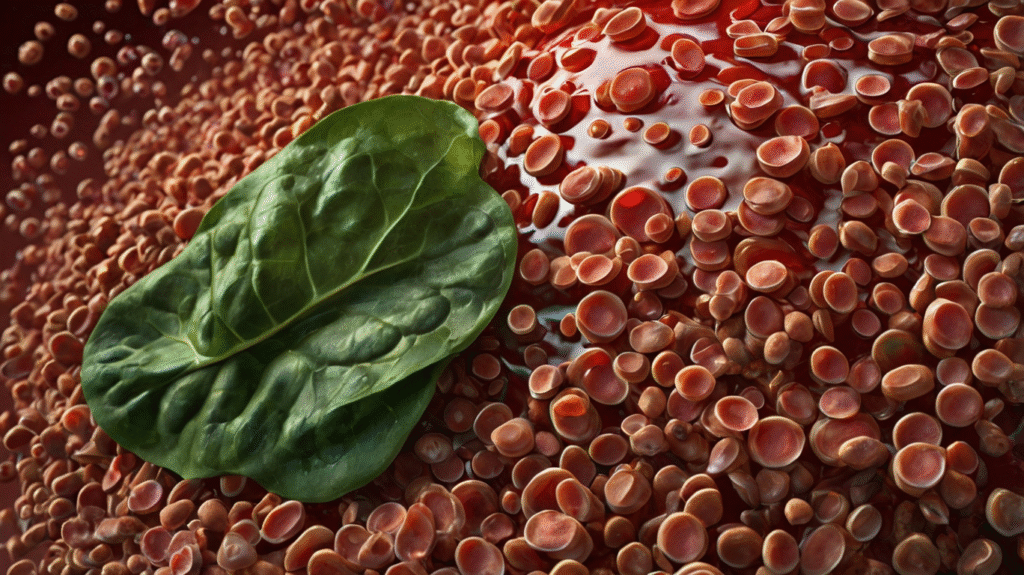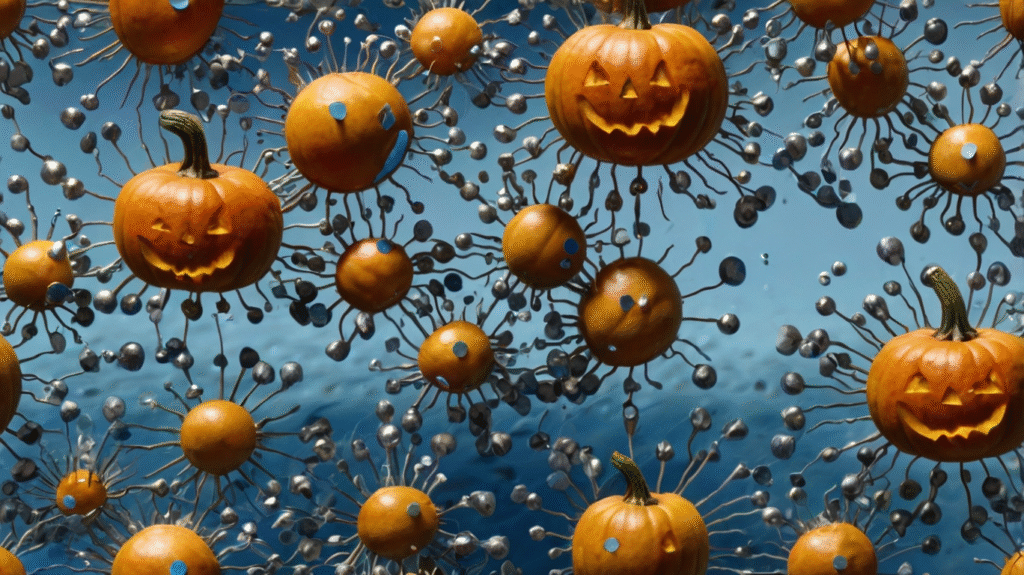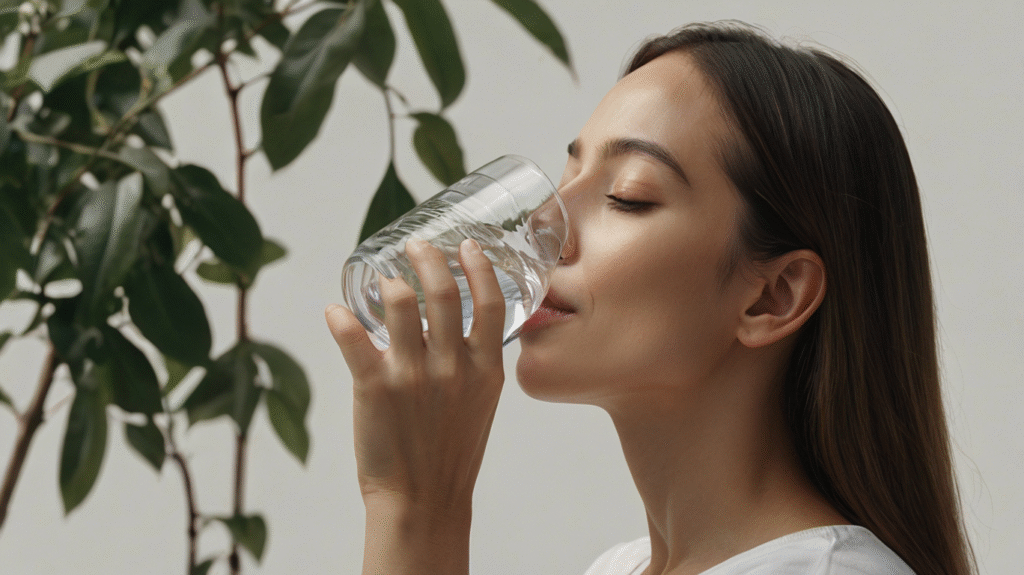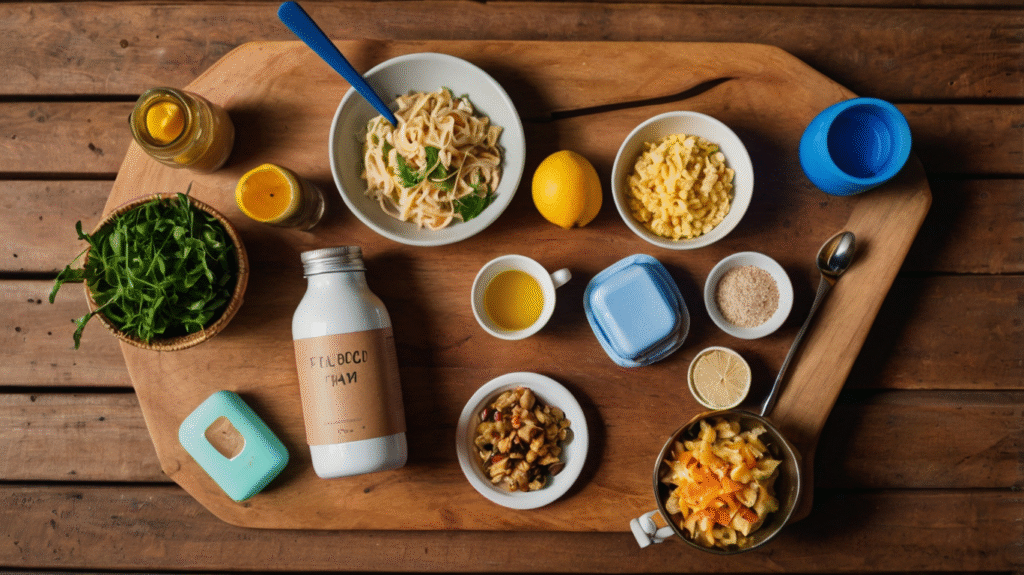Have you ever stood in front of the mirror and questioned why your hair is not growing faster or thicker than you would like? You’re not alone. While hair treatments and products tend to take center stage, the magic occurs from the inside out. What you put into your body—and more particularly, what you absorb—has a huge impact on the health and growth of your hair.
But here’s the question that really matters: Are you nourishing your body with what it really needs for healthy, vibrant hair?
Let’s take a look at how nutrients affect hair growth naturally and how you can make subtle but effective changes that your follicles will thank you for.
The Connection Between Diet and Hair Health

The saying “you are what you eat” is so true when it comes to your hair. Your hair, just like your skin and nails, depends on certain vitamins and minerals in order to grow and remain healthy. Without proper nutrition, hair can thicken, lose its shine, and even be lost prematurely.
When nutrients affect hair growth, they do so by fortifying the hair follicle, stimulating scalp circulation, and nourishing the natural growth cycle. Without proper fuel, your hair simply can’t survive.
Protein: The Building Block of Every Strand
Hair is composed mostly of a protein known as keratin. Therefore, it is no surprise that one of the most significant ways in which nutrients affect hair growth is through protein consumption. Without sufficient amounts of it, your body might have other priorities besides hair production, resulting in slower growth and more shedding.
Eat lean meats, eggs, beans, and nuts to provide your body with the amino acids necessary to grow strong, healthy hair.
Iron: Powering the Follicles

Iron deficiency is a common cause of hair loss, particularly in women. Iron enables red blood cells to transport oxygen to your scalp and follicles. Without iron, your hair roots can become weakened, and growth can cease.
This is yet another mechanism by which nutrients affect hair growth—by keeping your follicles energized and oxygenated. Spinach, lentils, red meat, and fortified cereals can increase your iron levels naturally.
Biotin: The Hair Growth Superstar
Biotin, or Vitamin B7, is an important nutrient for hair. It aids in keratin production and strengthens follicles. When individuals refer to nutrients affecting hair growth, they usually refer to biotin as a game-changer.
While extreme biotin deficiency is uncommon, low levels can still have an impact on hair quality. Incorporate foods such as eggs, almonds, and sweet potatoes into your diet to maintain your biotin levels.
Zinc: The Scalp's Repairman

Zinc aids in the repair of injured hair tissue and keeps the oil glands near the follicles functioning as they should. Zinc is also involved in balancing hormones, which is important for individuals suffering from hair loss as a result of imbalances.
When other nutrients and zinc affect hair growth, they not only stimulate new growth but also guard against breakage and scalp problems. Pumpkin seeds, chickpeas, and oysters are excellent sources.
Omega-3 Fatty Acids: Moisture from Within
Dry, brittle hair often signals a lack of healthy fats. Omega-3 fatty acids nourish your scalp, reduce inflammation, and provide the moisture needed for supple, shiny strands. This is another subtle but powerful way nutrients impact hair growth naturally.
Fatty fish like salmon, walnuts, and flaxseeds can help replenish these essential fats in your body.
Vitamin D: Awakening Dormant Follicles
Did you know that vitamin D can stimulate dormant hair follicles? It’s one of the lesser-known methods nutrients affect hair growth, but it works well—particularly for individuals experiencing hair thinning or slow regrowth.
Because your body produces vitamin D from sunlight, getting outside for 10-15 minutes a day is a good beginning. You can also obtain it through fortified milk, mushrooms, and fish such as mackerel or sardines.
Vitamin A: Scalp Oil Production in Balance
Your scalp requires precisely the right quantity of oil—a surplus clogs pores, and a deficiency leads to dryness. Vitamin A aids in sebum production regulation, as well as cell growth, including cells that support hair regeneration.
This serves as a demonstration of how nutrients affect hair growth by establishing the optimal scalp environment for new hair to grow. Carrots, sweet potatoes, and kale are all great sources.
Vitamin C: Collagen and Iron Absorption
Vitamin C increases collagen synthesis, which is what makes your hair strong. Vitamin C enhances iron absorption too—two essential nutrients affecting hair growth simultaneously. Without sufficient Vitamin C, your hair may turn weak, brittle, and sluggish.
Berries, citrus fruits, and bell peppers can supply a healthy dose of Vitamin C to your regular meals.
Water: The Underappreciated Nutrient

While not a vitamin or mineral, water is essential for healthy hair. It helps transport nutrients through your body, keeps your scalp hydrated, and supports cell renewal. Simply put, no matter how many nutrients impact hair growth, they can’t work without water.
Aim to drink at least 8 glasses a day. If you’re active or live in a hot climate, increase that amount.
Lifestyle Tips to Boost Nutrient Absorption

Even the most ideal diet will not succeed if your body is unable to absorb nutrients effectively. Here’s how to help:
- Eat a variety of whole foods: varied meals provide a wider range of nutrients.
- Steer clear of too much sugar and alcohol: these can hinder nutrient absorption.
- Be consistent: Hair health increases over time with consistent changes.
- Use supplements with caution: Consult a medical professional before using hair-specific supplements.
When you nourish your body as a whole, the vitamins affect hair growth more naturally and efficiently.
Conclusion
Fabulous hair isn’t created in salons—it’s created in your kitchen. When the proper nutrients affect hair growth, you’ll see healthier roots, more radiant strands, and a balanced scalp. It requires patience and persistence, but the payoff is well worth the effort.
So the next time you grab for a miracle hair serum, keep this in mind: the most potent formula may be on your plate, not in a bottle
FAQs
While diet alone may not reverse genetic hair loss, improving your nutrition can significantly slow the process and encourage stronger regrowth. It’s especially effective for hair loss caused by deficiencies.
Hair grows slowly—about half an inch per month. With consistent changes, you may start to see results in 3 to 6 months.
Yes, with a well-balanced, varied diet, you can meet most of your nutritional needs. Supplements are best used to fill specific gaps, not replace meals.
Some supplements can help, especially if you’re deficient in specific nutrients. However, always consult a healthcare provider before starting any supplement regimen.
Absolutely. Hydration supports nutrient delivery and cellular functions that directly affect hair growth and scalp health.
More Information: